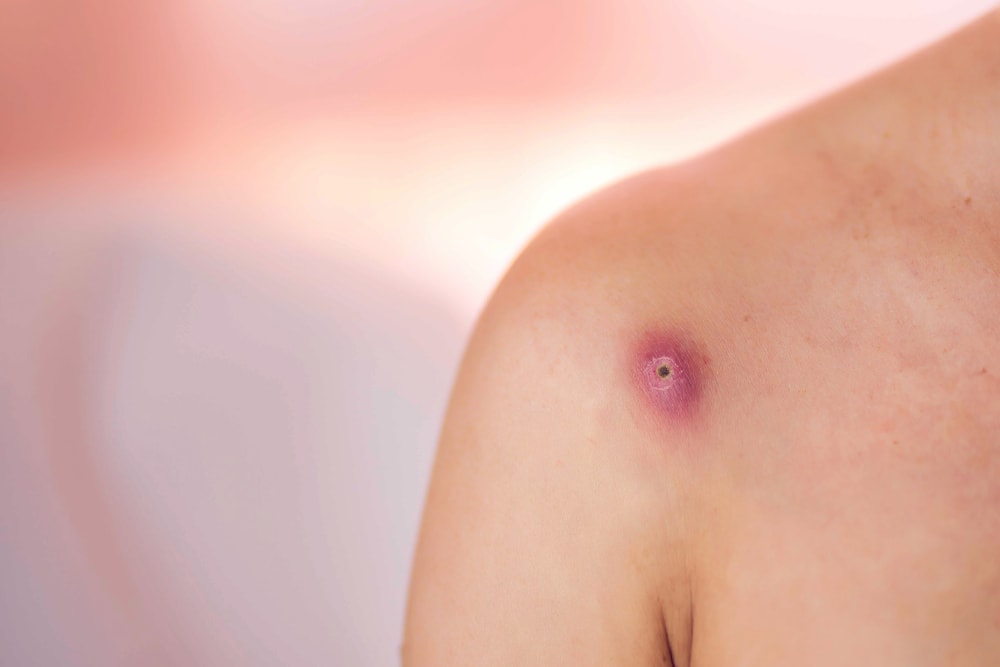Introduction
Can stress cause boils is an unavoidable aspect of modern life, impacting both mental and physical well-being. While its effects on mental health are well-documented, its influence on physical health, particularly on the skin, is often overlooked. One such manifestation of stress on the skin is the development of boils. In this comprehensive guide, we delve into the intricate relationship between stress and boils, exploring the underlying mechanisms and offering practical solutions for stress management.
Understanding Boils
Boils, also known as furuncles, are painful, pus-filled lumps that develop beneath the skin’s surface. They occur when hair follicles become infected with bacteria, typically Staphylococcus aureus. Boils can appear anywhere on the body and are often accompanied by redness, swelling, and tenderness.
What Causes Boils?
Boils develop when bacteria enter the body through small cuts or breaks in the skin. Factors such as poor hygiene, compromised immune function, and underlying medical conditions can increase the risk of boil formation.
The Role of Stress
Stress exerts a profound impact on the body’s immune system, weakening its ability to fight off infections. Additionally, stress triggers hormonal changes that can disrupt the skin’s natural balance, making it more susceptible to bacterial infections.
The Stress-Boils Connection
The relationship between stress and boils is bidirectional, with each exacerbating the other. Chronic stress compromises the immune system, making it harder for the body to combat bacterial infections, including those that lead to boils. Conversely, the presence of boils can induce stress and anxiety in individuals, further perpetuating the cycle.
How Stress Contributes to Boil Formation
- Weakened Immune Response: Prolonged stress suppresses immune function, making the body less capable of fighting off bacterial invaders.
- Increased Inflammation: Stress triggers the release of pro-inflammatory chemicals in the body, creating an environment conducive to bacterial growth and inflammation.
- Impaired Skin Barrier Function: Stress disrupts the skin’s protective barrier, allowing bacteria to penetrate more easily and leading to the development of boils.
Real-life Impact: John’s Story
John, a busy professional, experienced frequent bouts of stress due to work pressures. Despite maintaining good hygiene, he found himself plagued by recurring boils on his neck and back. It was only after implementing stress-reduction techniques, such as meditation and exercise, that he noticed a significant improvement in his skin health.
Managing Stress for Healthy Skin
While stress may be unavoidable, there are strategies to mitigate its impact on skin health and reduce the likelihood of boil formation.
Stress Management Techniques
- Mindfulness Meditation: Engaging in regular mindfulness meditation can help alleviate stress and promote relaxation.
- Regular Exercise: Physical activity releases endorphins, which act as natural stress relievers and boost immune function.
- Healthy Lifestyle Choices: Adopting a balanced diet, getting adequate sleep, and avoiding excessive alcohol and caffeine consumption can support overall well-being.
Seeking Support
If stress becomes overwhelming or begins to impact daily life, it’s essential to seek support from friends, family, or a mental health professional. Talking about your feelings and experiences can provide much-needed relief and perspective.
FAQs (Frequently Asked Questions)
Q: Can stress cause boils to appear suddenly?
A: While stress alone may not directly cause boils, it can weaken the immune system, making the body more susceptible to bacterial infections that lead to boil formation.
Q: How can I differentiate between a boil and a pimple?
A: Boils are typically larger and more painful than pimples, and they often contain pus. They also tend to develop deeper within the skin.
Q: Are boils contagious?
A: Boils themselves are not contagious, but the bacteria that cause them can spread through direct contact with infected individuals or contaminated objects.
Q: Can stress exacerbate existing skin conditions like eczema or psoriasis?
A: Yes, stress can worsen existing skin conditions by triggering inflammation and disrupting the skin’s natural barrier function.
Q: Is it necessary to seek medical attention for boils?
A: In most cases, boils can be treated at home with warm compresses and proper hygiene. However, if a boil is large, persistent, or accompanied by fever, it’s advisable to consult a healthcare professional.
Q: Are there any preventive measures to reduce the risk of boils?
A: Maintaining good hygiene, avoiding sharing personal items, and managing stress effectively can help reduce the likelihood of boil formation.
Conclusion
In conclusion, stress can significantly impact skin health, increasing the risk of conditions such as boils. By understanding the intricate relationship between stress and boils and implementing effective stress management techniques, individuals can safeguard their skin and overall well-being. Remember, prioritizing self-care and seeking support when needed are crucial steps in maintaining healthy skin amidst life’s inevitable stressors.




